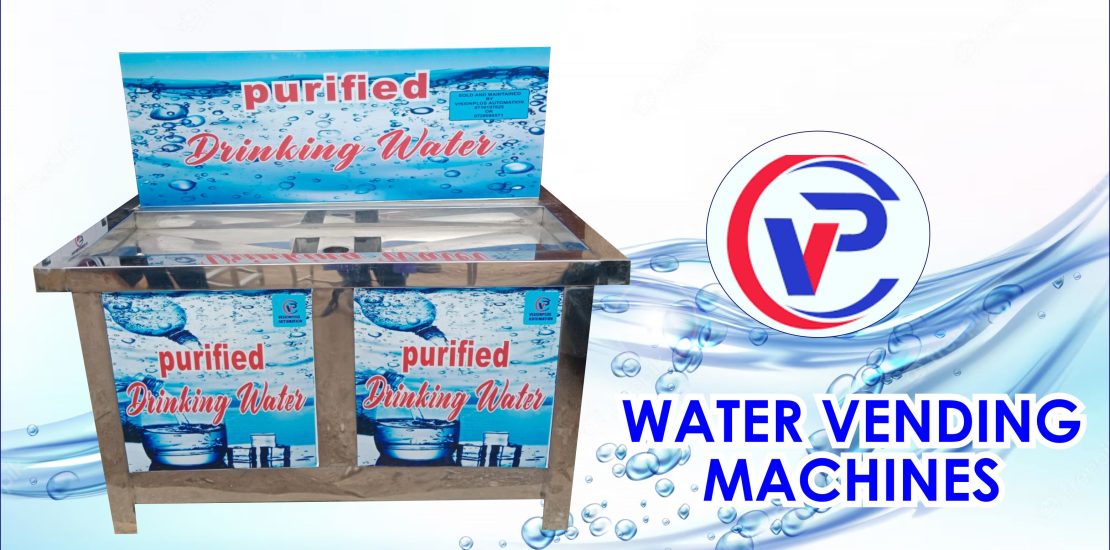- November 23, 2023
- Posted by: VisionPlus Automation
- Category: Water vending machine

The Economic Impact of Water Vending Machines in Kenya
The Economic Impact of Water Vending Machines in Kenya
Introduction
Access to clean and safe water is a fundamental human right, and in Kenya, innovative solutions, such as water vending machines, are not only addressing this necessity but also playing a pivotal role in driving economic growth. This essay explores the multifaceted ways in which water vending machines contribute to raising the economy of Kenya, from creating entrepreneurial opportunities to improving public health and fostering community development.
1. Entrepreneurial Opportunities:
Water vending machines provide a platform for entrepreneurial ventures, empowering individuals to establish and operate their water businesses. Entrepreneurs can invest in these machines, strategically place them in high-demand areas, and offer affordable and accessible clean water to communities. This decentralized approach to water distribution creates micro-enterprises, generating income for entrepreneurs and contributing to local economic development.
2. Job Creation:
The establishment and operation of water vending machines contribute to job creation at various levels. Entrepreneurs involved in managing the machines may hire local staff for maintenance, monitoring, and customer service. Additionally, the manufacturing, distribution, and maintenance of the vending machines themselves create employment opportunities, further stimulating economic activity.
3. Accessible and Affordable Water:
Water vending machines ensure that clean and safe water is readily accessible to communities. This accessibility has profound economic implications. Families and individuals can save both time and money by avoiding long trips to distant water sources. The affordability of water from vending machines reduces the financial burden on households, allowing them to allocate resources to other essential needs such as education, healthcare, and small-scale investments.
4. Health Cost Reduction:
The availability of clean water through vending machines contributes to public health, leading to a reduction in waterborne diseases. Access to safe water helps prevent water-related illnesses, lowering healthcare costs for both individuals and the government. Healthy communities are more productive, contributing to a more robust and resilient economy.
5. Community Development:
Water vending machines often become focal points for community development. Entrepreneurs and local businesses may collaborate to establish water kiosks that also offer additional services such as information centers, small shops, or gathering spaces. This integrated approach fosters community cohesion and stimulates economic activities beyond water distribution.
6. Technological Advancements:
The adoption of water vending machines aligns with technological advancements, contributing to a more modern and efficient water distribution system. The integration of digital payment methods, smart monitoring systems, and data analytics not only enhances the operational efficiency of water vending businesses but also positions Kenya as a leader in leveraging technology for essential services.
7. Environmental Impact:
Water vending machines can be designed with sustainability in mind, promoting responsible water use. Implementing eco-friendly practices, such as encouraging the use of refillable containers, reduces the environmental impact associated with single-use plastic bottles. This environmental consciousness aligns with global sustainability goals and enhances the country’s reputation.
8. Resilience in Water Supply:
Water vending machines contribute to the resilience of water supply systems. By diversifying water distribution channels, especially in urban areas, these machines help alleviate pressure on centralized water sources. This resilience is crucial, particularly in regions prone to water scarcity, ensuring a more reliable water supply for both residential and industrial purposes.
Conclusion: A Fountain of Economic Growth
Water vending machines in Kenya are not merely dispensers of a basic necessity; they are catalysts for economic growth and community well-being. From creating entrepreneurial opportunities and generating employment to ensuring affordable and accessible water, these machines are instrumental in shaping a more prosperous future for Kenya. As the ripple effects of clean water accessibility extend into health improvements, community development, and technological advancements, water vending machines emerge as a fountain of economic growth, nurturing a more resilient and vibrant economy in Kenya.
